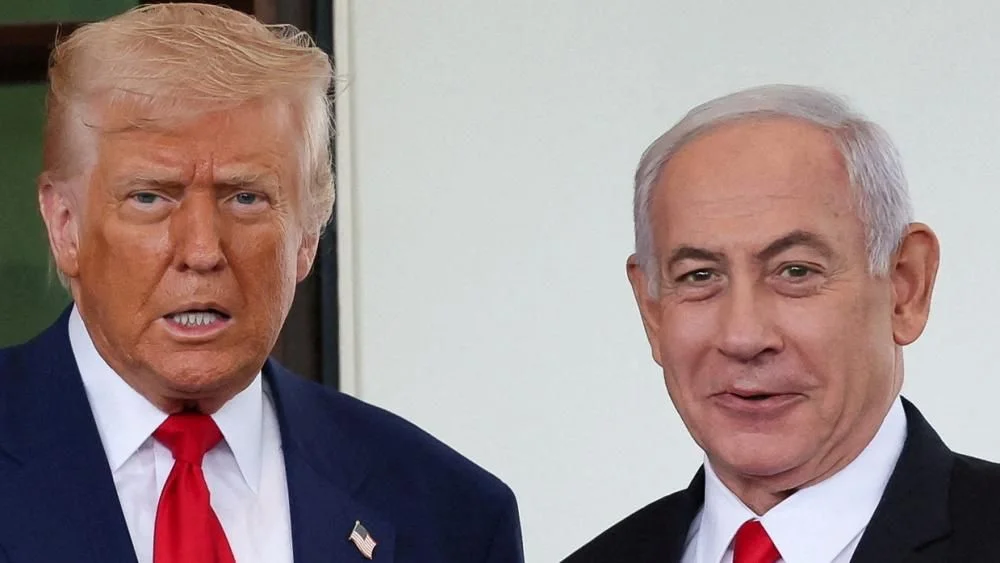U.S. President Donald Trump called on Israel to pardon Prime Minister Benjamin Netanyahu or cancel his corruption trial on June 25, 2025, describing him as a “Great Hero” who has done much for Israel.
Netanyahu, indicted in 2019 on charges of bribery, fraud, and breach of trust, faces three criminal cases, all of which he denies.
The trial, ongoing since 2020, has stirred controversy, with Trump labeling it a “witch hunt” on Truth Social, a term he often uses for his own legal battles.
“Bibi Netanyahu’s trial should be CANCELLED, IMMEDIATELY, or a Pardon given,” Trump wrote, noting Netanyahu’s court appearance scheduled for Monday, June 30.
Trump’s statement, claiming the U.S. “saved Israel” and will now “save Bibi,” likely refers to U.S. support for Israel’s recent strikes on Iran’s nuclear facilities, which preceded a fragile ceasefire brokered on June 24.
However, Trump’s rare rebuke of Israel’s post-ceasefire strikes on Iran suggests a complex dynamic, with some analysts speculating he seeks to pressure Netanyahu into a Gaza hostage deal to end the war.
Israel’s opposition leader, Yair Lapid, rejected Trump’s intervention, stating, “He’s not supposed to interfere in a legal process of an independent state,” emphasizing Israel’s judicial sovereignty.
Geopolitical and Legal Context
Netanyahu’s trial centers on allegations of trading favors with media and business figures, charges he dismisses as politically motivated.
Trump’s call comes amid his broader foreign policy moves, including a travel ban on 12 countries, including African nations like Sudan and Somalia, and tightened U.S. visa rules requiring Liberians to share social media data, mirroring Nigeria’s struggles with UAE visa restrictions.
These policies highlight Trump’s focus on security and influence, potentially leveraging U.S.-Israel ties to sway Netanyahu’s legal fate.
The intervention has sparked debate in Israel, with critics arguing it undermines judicial independence, while supporters view it as gratitude for Netanyahu’s role in regional stability, including the Iran ceasefire.
It’s suggested Trump’s support might be a strategic move to secure a Gaza deal, aligning with U.S. interests in Middle East peace.
However, it’s unclear whether the U.S. can directly influence Israel’s legal system.
Regional and African Parallels
Trump’s comments resonate with African governance challenges, such as Nigeria’s Ministry of Foreign Affairs’ silence on UAE visa barriers, which impose a $60,000 bank balance requirement, limiting mobility.
Similarly, Ghana’s $2.8 billion debt restructuring deal reflects efforts to stabilize economies under global pressures, akin to Israel’s reliance on U.S. support.
Nigeria’s $1 billion Brazil deal for agriculture and energy further underscores regional pushes for self-reliance, contrasting with external interventions like Trump’s in Israel.
A Diplomatic Dilemma
As Netanyahu’s trial looms, Trump’s intervention raises questions about international influence over sovereign legal processes.
Can Israel balance U.S. pressure with judicial independence, or will geopolitical alliances reshape Netanyahu’s fate?
The outcome could impact Middle East dynamics and Africa’s diplomatic relations with global powers.




















